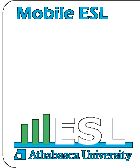Unit 57: QUANTITY
We can use
any, all, every, a few, a little, a lot of, lots of, many, most, much, no, none of, some
to talk about how much or how many of a noun.
When we are talking about quantity, we can talk about number (general quantity) or we can talk about percentage (how much or how many of something).
Number
ZERO QUANTITY
There weren't any people in the street.
We didn't go anywhere last night.
There were no people outside. no = not any
The book was no help to me at all.
There was nothing we could do about it.
NOTICE:
nothing = no thing
nowhere = no place
nobody/ no one = no person
SMALL QUANTITY
PLURAL NOUNS
a few people
not many students
MASS NOUNS (Unit 47)
a little time
not much advice
LARGE QUANTITY
There was lots of coffee in the shop.
There were a lot of people in the street.
NOTICE: We can also use many and much. For example: I have had many problems, but usually only in writing.
Percentage
We can use all the words that we can use for number. For example:I didn't see any of the hockey game. I was too busy.
Only a few of the students passed the exam.
Many of them didn't have time to finish it.
Notice that we often use of after the quantity-word to introduce what we are talking about.
We also use:
NONE OF (zero)
None of the students passed the exam.
I didn't like the film. None of it was any good.
NOTICE: We cannot say no of.
SOME/ SOME OF (more than zero, but less than half)
The exam was very difficult but some students did quite well.
I liked the film but some of the acting was bad.
MOST/ MOST OF (more than half, but less than 100 per cent)
Most people hate going to the dentist.
The exam was very hard. Most of us failed.
ALL/ ALL OF (100 per cent)
All the buses from here go to the station.
The exam was easy. All of us passed.
Every and any
These words go with singular nouns. We can also use them with one/ body/ thing/ where.
EVERY (ALL) = * and * and * and *
Come and see me every day next week.
See me seven times.
I've been everywhere in Europe.
To all places.
Everyone passed the exam.
All the students.
ANY = * or * or * or *
Come and see me any day next week.
Come one day - it doesn't matter which one.
You can go anywhere in Europe with this ticket.
You can choose where to go.
Anyone can pass that exam.
It is very easy.
You can take any bus from here to the station.
They all go to the station, so it doesn't matter which one you take.
NOTICE: We use both, either and neither for two of something (Unit 58).
NOTICE: Appendix 9 tells you about numbers in English.









